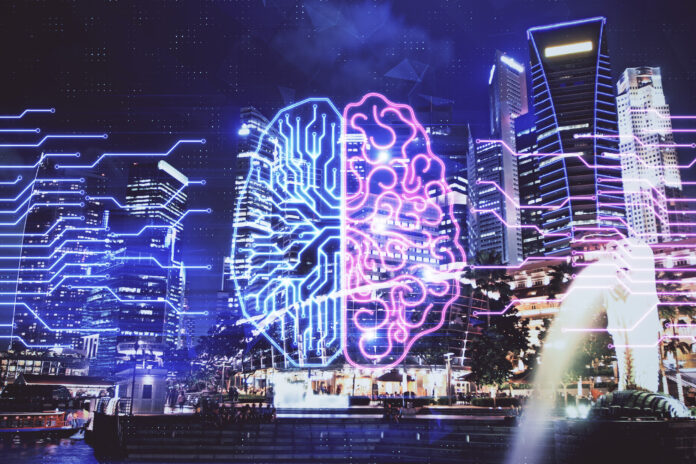In this regular update, RCR Wireless News highlights the top news and developments impacting the booming AI infrastructure sector.
KDDI closes deal for Osaka AI data center
Japanese operator KDDI sealed a purchase agreement with Sharp to acquire its former LCD screen factory in Sakai, Japan, to build an AI data center fully powered by renewable energy, with the aim to start operations by end-March 2026.
The operator highlighted that the new data center will be equipped with Nvidia GB200 GPUs and will be capable of developing large-scale generative AI models with trillions of parameters. “The Osaka Sakai Data Center will be equipped with the latest GPU infrastructure, including the NvidiaGB200 NVL72, and will be capable of developing large-scale generative AI models with trillions of parameters at high speed, with the aim of starting operations in fiscal 2025,” KDDI said.
KDDI added the site will use the latest power supply and water-cooling technologies to reduce power consumption. KDDI subsidiary Telehouse operates more than 45 data centers around the world.
Rival operator SoftBank has also acquired part of this site for the development of its own data center.
Axiom Space to launch orbital data center nodes
Axiom Space announced the upcoming launch of its first two Orbital Data Center (ODC) nodes to low-Earth orbit (LEO), by the end of this year.
The company noted that these nodes will lay the foundation for space-based cloud computing. ODCs will provide cloud-enabled data storage and processing, and artificial intelligence/machine learning (AI/ML) solutions directly to satellites, constellations and other spacecraft in Earth’s orbit, with the capability to operate independently of terrestrial infrastructure.
Axiom Space noted that some use cases for ODCs include:
-On-orbit and real-time processing, exploitation, and dissemination (PED) of data from multiple national security and commercial satellites
-Lower-latency multi-sensor fusion for terrestrial or Space threat detection and tracking
-AI/ML and Large Language Models (LLM) to enable real-time and autonomous or semi-autonomous decision making for satellites and other space assets.
Serbia inks deal with Atos’ Eviden for $55 million supercomputer
The Serbian government has sealed an agreement with Eviden, the supercomputing unit of French IT firm Atos, with the aim of acquiring a supercomputer.
The deal is part of a wider governmental agreement between Serbia and France.
The bulk of the cost of the deal will be spent on the supercomputer, while the remainder will be allocated for AI-focused projects across the healthcare, energy, transport and government sectors.
Serbia’s government currently operates at least one supercomputer, manufactured by Nvidia and housed in the country’s State Data Center in Kragujevac.
Mihailo Jovanovic, head of Serbia’s office for IT and eGovernment, said the new supercomputer has 20x more chips than the Nvidia supercomputer and would have almost 30 times more storage. The new supercomputer is expected to arrive in Serbia by the end of 2025.
Why these announcements matter
Recent developments show how countries and companies are rapidly scaling and diversifying AI infrastructure—on Earth and in orbit.
KDDI is transforming a former Sharp factory in Osaka into a renewable-powered AI data center, equipped with Nvidia GB200 GPUs and advanced cooling to support trillion-parameter generative AI models, while Axiom Space is taking AI to orbit, with its first Orbital Data Center (ODC) nodes heading to low-Earth orbit by year-end. These will enable cloud-based processing and AI/ML solutions directly in space, supporting defense, satellite ops, and autonomous decision-making. In Europe, Serbia signed a deal with Eviden (Atos) for a supercomputer with 20x more chips and 30x more storage than its current system, aimed at boosting national AI capabilities across public sectors.
Follow AI Infrastructure Insights on LinkedIn to get more AI infra briefs.

